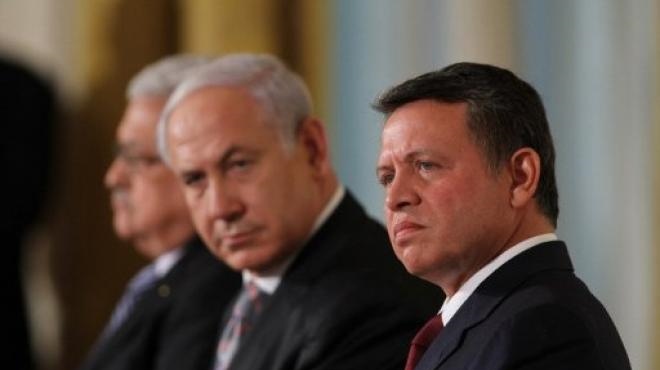Jordan to re-evaluate Israel relations
October 22, 2018 | Expert Insights

Jordan’s King Abdullah II announced that he does not plan to renew parts of the country’s landmark 24-year-old peace agreement with Israel.
The move comes at the heels of rising public pressure to rebuke the Israeli government following the U.S. Embassy’s move to Jerusalem and ongoing violence in Gaza.
Background
Israel is the world's only Jewish state. The Jews staked claim for a land of their own due to religious reasons. The Kingdom of Jordan lies to the East of Israel and was one of the first Arab states to establish formal diplomatic relations with Israel.
Major wars such as the War of Attrition, the Yom Kippur War and the Gaza War have been fought over the years. Nearly every effort by the international community to establish peace in the region has failed. Peace negotiations between Israel and Jordan began in 1994. On October 26, 1994, the governments of Jordan and Israel signed a historic peace treaty. The treaty normalized relations between the two countries and resolved territorial disputes, such as water sharing. Since this time, the two countries have also enjoyed official diplomatic relations, but of late tensions have been mounting due to the conflict over the Al-Aqsa mosque.

Analysis
Jordan’s King Abdullah II announced on Sunday that he does not plan to renew parts of the country’s 24-year-old peace agreement with Israel, amid public pressure to rebuke the Israeli government following the U.S. Embassy’s move to Jerusalem and ongoing violence in Gaza.
In Israel, the announcement was received with surprise. Analysts said it was a populist move by the king aimed at opposition groups. Prime Minister Benjamin Netanyahu, however, appeared unruffled by the announcement. He said relations with Jordan were still strong. The deal between the countries was reached in November 1994 between Abdullah’s father, King Hussein and then-Israeli Prime Minister Yitzhak Rabin.
The parts Jordan wants to revoke relate to two parcels of land that Jordan leased to Israel for 25 years. The lease on the two territories — known as Baqoura and Ghumar in Arabic and Naharayim and Zofar in Hebrew — ends in one year. Jordan had until Thursday to make clear to Israel it would not renew the arrangement.
“Baqoura and Ghumar are Jordanian lands and will remain Jordanian and we will exercise full sovereignty over our territory,” the king said, according to a royal court statement. The peace treaty with Israel is deeply unpopular in Jordan, where people claim that successive Israeli governments have failed to live up to water-sharing agreements. Israel’s ongoing occupation of Palestinian territories is also a source of anger among Jordanians.
Speaking at an official memorial for Rabin, who was assassinated by an Israeli citizen in 1995 because of his push for peace, Netanyahu played down Abdullah’s announcement, saying he would try to negotiate an extension to the existing arrangement. He said the agreement between Israel and Jordan was one of true peace and “an important asset to both countries.”
In Jordan, however, the decision to downgrade its arrangement with Israel sparked celebrations. There has been a push in recent months to cancel the lease agreement and demand that Israel return the land. Both areas are used for agricultural purposes.
Large-scale protests over the weekend urged the king to reclaim the Jordanian territory. After his announcement Sunday, Jordanians took to social media, with one person calling it a “historic and wise decision.” Abdullah also tweeted: “Baqoura and Ghumar have always been at the top of our priorities and our decision to terminate the annexation of Baqoura and Ghumar from the peace treaty is based on our commitment to take all necessary decisions for Jordan and Jordanians.”
More recently, relations have been strained over the status of the flash-point al-Aqsa Mosque compound, referred to by Jews as the Temple Mount, in Jerusalem and in the aftermath of a shooting at the Israeli Embassy in Amman in which two Jordanian citizens were killed.
Assessment
Our assessment is that West Asia’s most stable peace agreement is being threatened by the recent developments in Gaza. Jordan has been a partner to Israel for development in the region but the recent statement indicates the agreement could be on shaky ground. We believe that public sentiment in Jordan against Israel is strong because of its continued occupation of Palestinian territories and its treatment of Palestinians.








Comments